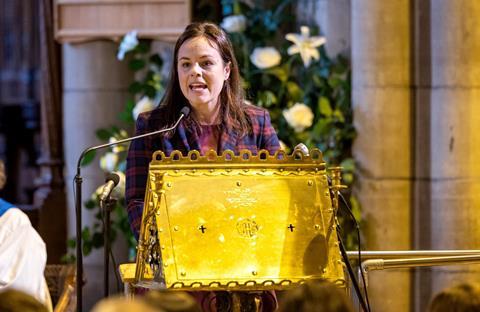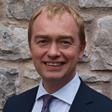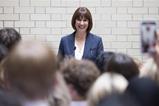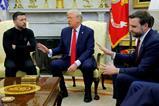Having recently interviewed Kate Forbes MSP on the challenges of working as a Christian politician, Tim Farron MP says the political sphere needs voices of faith more than ever

Last week, I interviewed Kate Forbes MSP, who recently stood for leadership of the Scottish National Party (SNP), for my podcast ‘A Mucky Business’. We spoke about her experiences during the campaign, the scrutiny she received over her faith and her advice for Christians looking to get involved in politics.
Like me, Kate had been involved in frontline politics for several years before standing for the leadership of her party. She prepared better than I did for the inevitable barrage of questions she would receive about her faith, as the media dedicated itself to scrutinising her Christianity as much as assessing her political aptitude.
What’s in a worldview?
The lazy assumption in politics today is that an absence of faith is neutral, and that if you have a faith, it inevitably means that your thoughts and actions are eccentric, irrational, possibly offensive and sometimes even dangerous. Of course, this is nonsense.
When people start to treat you in a different way because of your views, it hurts
Everyone approaches life with a particular worldview. Atheist politicians may not stick a label on it in the same way that Christians do, but it does not mean the secular perspective is any more rational or reasonable. In fact, without God, human rights and values are simply an arbitrary and temporary fiction, with no deeper grounding than current popular opinion.
Counter-cultural faith
In light of the suspicion that surrounded her faith, Kate wisely made the decision to lay all her cards on the table at the outset. “People are crying out for honesty, truth and integrity from their politicians,” she said.
It will always be counter-cultural to hold to the Bible’s teachings on how we live our lives. As Kate found, the obsession with her beliefs meant that “it was touch and go as to whether I would be given the chance to start talking about the economy, about social issues that weren’t just those hot moral issues. And so it took quite a lot of effort to push it onto other issues.”
Kate has never hidden her faith but, as the leadership contest progressed, some who had previously supported her started to step away. “When people start to treat you in a different way because of your views, it hurts. And that was painful, particularly people that I’d worked with for many years.”
The impact of honesty
She was also concerned about the impact on her family, because “when you’re in the eye of the storm there are ripple effects”. She was particularly worried about the reception that her step-daughters would get at school.
But she was delighted to receive an outpouring of local support: “I had this sense that even though I was perhaps not particularly well-liked in the public domain, my local people were right behind me, and my family experienced that as well. And that’s really encouraging.”
Others also spoke up for Kate’s right to hold her faith and stand for leadership. In many cases, “fault lines disappeared, and there was so much uniting both Christians and people without faith along principles like freedom of speech, freedom of political view, freedom of conscience,” she told me.
Standing up for truth
When I asked Kate what would have happened if she kept quiet about her faith, she said: “Maybe I would have won, but would then have fallen quite quickly because of these issues emerging. I think people admired and respected honesty.”
For Christians seeking to go into politics, Kate’s advice was that “they need to be very honest with themselves.”
Without God, human rights and values are simply an arbitrary and temporary fiction
She said: “I think it is very risky to hide your faith. Too often, people think: if I keep quiet at the beginning, then I’ll get into a position of responsibility and then I’ll be able to change everything. But if you don’t learn how to defend yourself in some of the small spheres, then it’s almost impossible in the bigger sphere.
“Don’t be fearful - there is nothing to fear that at the end of the day. If you want to be in politics, go for it, but do not let fear characterise everything you do.”
As Christians, we know that, ultimately, God is sovereign. If he calls us to enter the mucky business of politics, we can be sure that he will guide us and give us wisdom for the journey.
Kate and I have both experienced the challenges of being a Christian in frontline politics, but we need voices of faith in the public square, pursuing justice, defending the poor and vulnerable, welcoming the outcast, and seeking – imperfectly – to demonstrate the selfless and sacrificial love of Christ himself.
Read the full interview with Kate Forbes MSP in the November issue of Premier Woman Alive magazine. Subscribe here





































2 Readers' comments